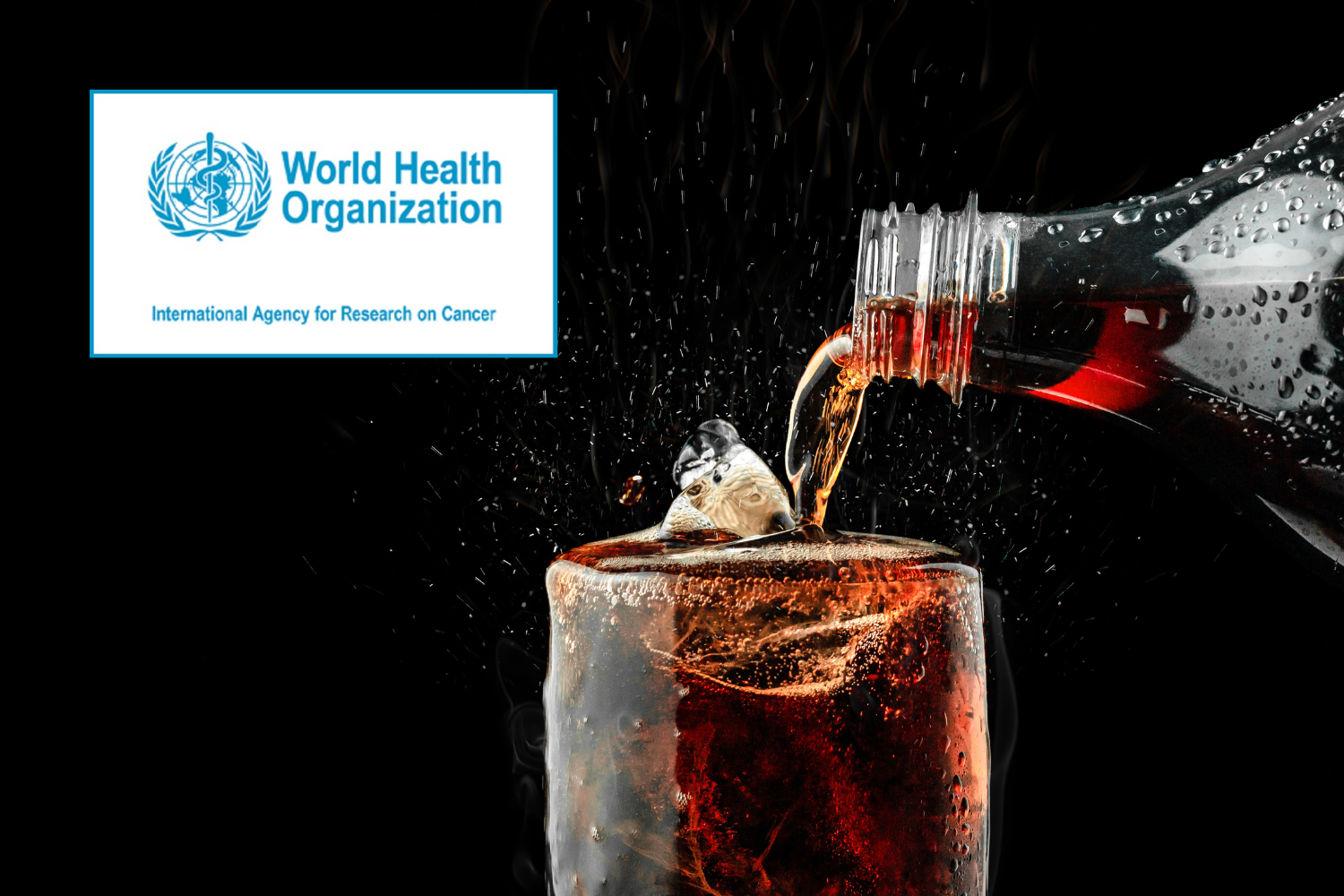The World Health Organization on Thursday classified the soda sweetener aspartame as a possible carcinogen but said it is safe for people to consume within the recommended daily limit. The International Agency for Research on Cancer, a WHO body, identified a possible link between aspartame and a type of liver cancer called hepatocellular carcinoma after reviewing three large human studies conducted in the U.S. and Europe that examined artificially sweetened beverages. Aspartame is used in Diet Coke, Pepsi Zero Sugar, and other diet sodas, as well as some chewing gum and various Snapple drinks as a sugar substitute. Artificially sweetened beverages have historically been the biggest source of aspartame exposure, according to Lancet Oncology. The Expert Committee on Food Additives said on Thursday that the current evidence supporting the link between aspartame and cancer in humans is not convincing. JECFA is an international body of WHO and UN scientists that recommends how much food people can eat safely. JECFA said Thursday that aspartame is safe to consume if a person's daily sweetener intake does not exceed 40 milligrams per kilogram of body weight over the individual's lifetime. The FDA-recommended daily limit is slightly higher, at 50 milligrams of aspartame per kilogram of body weight. An adult weighing 70 kilograms or 154 pounds would have to drink more than nine to 14 cans of aspartame-containing soda such as Diet Coke daily to exceed the limit and potentially face health risks, said Dr. Francesco Branca, who heads the WHO nutrition and food safety division, during the press conference Wednesday.
Someone who drinks a can of soda now and then or occasionally chews gum that contains aspartame does not need to worry about a health risk, Branca said. WHO recommends that people use moderation when consuming food or drinks containing aspartame, he said. Branca warns that children who consume aspartame-flavored sodas may exceed the daily limit by drinking just three cups. He said children who start consuming aspartame early in life may face an increased health risk later on, although more research is needed on exposure across the lifespan. The WHO is not calling on companies to remove products containing aspartame, Branca said. But food companies should consider changing the ingredients used to make products that don't use sweeteners, he said. The American Association of Beverages supported the WHO's findings on Thursday, saying that aspartame is a good choice for people who want to reduce sugar and calories in their diet. Although aspartame can reduce the number of calories in some drinks, the WHO concluded in May that sugar substitutes do not help children or adults lose weight in the long term.
Dr. William Dahut, scientific director of the American Cancer Society, said that consumers will want to make decisions based on their own risk assessment knowing that aspartame has no health benefits and is a possible cancer. The food industry often uses aspartame as a sugar substitute because it is 200 times sweeter than sugar, which means that it can be used with fewer calories and less calories and get a similar taste. About 6,000 products worldwide contain aspartame, according to the Calorie Control Council, a trade group that represents sweetener manufacturers. Aspartame was discovered in 1965 by scientists and G.D. Searle & Co. and later sold under the brand name NutraSweet. Artificial sweeteners have been controversial since their initial approval. The FDA first approved sugar substitutes as a tabletop sweetener and as an additive in certain foods in 1974. The agency held up the decision for years because of questions about the reliability of G.D.'s safety studies. Searle maintains that both aspartame is linked to the brain. the tumor. The FDA finally concluded that there was reasonable certainty that aspartame did not cause brain tumors and authorized the market in 1981. The company later approved the use of aspartame in many other types of food and drinks and finally approved it as a general-purpose sweetener in 1996. FDA says he checks science for new information and aspariantames.

Dr. Mary Schubauer-Berigan, a senior official at IARC, emphasized that the classification of aspartame as a possible carcinogen is based on limited evidence. The three studies could have been influenced by chance, bias or other flaws, Schubauer-Berigan noted. More research is needed to determine whether consumption of the artificial sweetener can actually lead to cancer, she said. “This shouldn’t really be taken as a direct statement that indicates that there is a known cancer hazard from consuming aspartame,” Schubauer-Berigan told journalists during a press conference Wednesday before the findings were released to the public. “In our view, this is really more a call to the research community to try to better clarify and understand the carcinogenic hazard that may or may not be posed by aspartame consumption,” Schubauer-Berigan said.
The U.S. Food and Drug Administration disagrees with IARC’s conclusion that aspartame is a possible carcinogen in humans, an agency spokesperson said on Thursday. The FDA reviewed the the same evidence as IARC in 2021 and identified significant flaws in the studies, the spokesperson said. “Aspartame is one of the most studied food additives in the human food supply,” the spokesperson said. “FDA scientists do not have safety concerns when aspartame is used under the approved conditions.”
Branca cautioned that children who consume soda sweetened with aspartame could exceed the daily limit by drinking just three cans. He said children who start consuming aspartame early in life may face a heightened health risk later, though more research is needed on lifelong exposure. “You may have families that instead of having water on the table, have a big can of sparkling drinks with sweeteners. That’s not a good practice,” he said.



